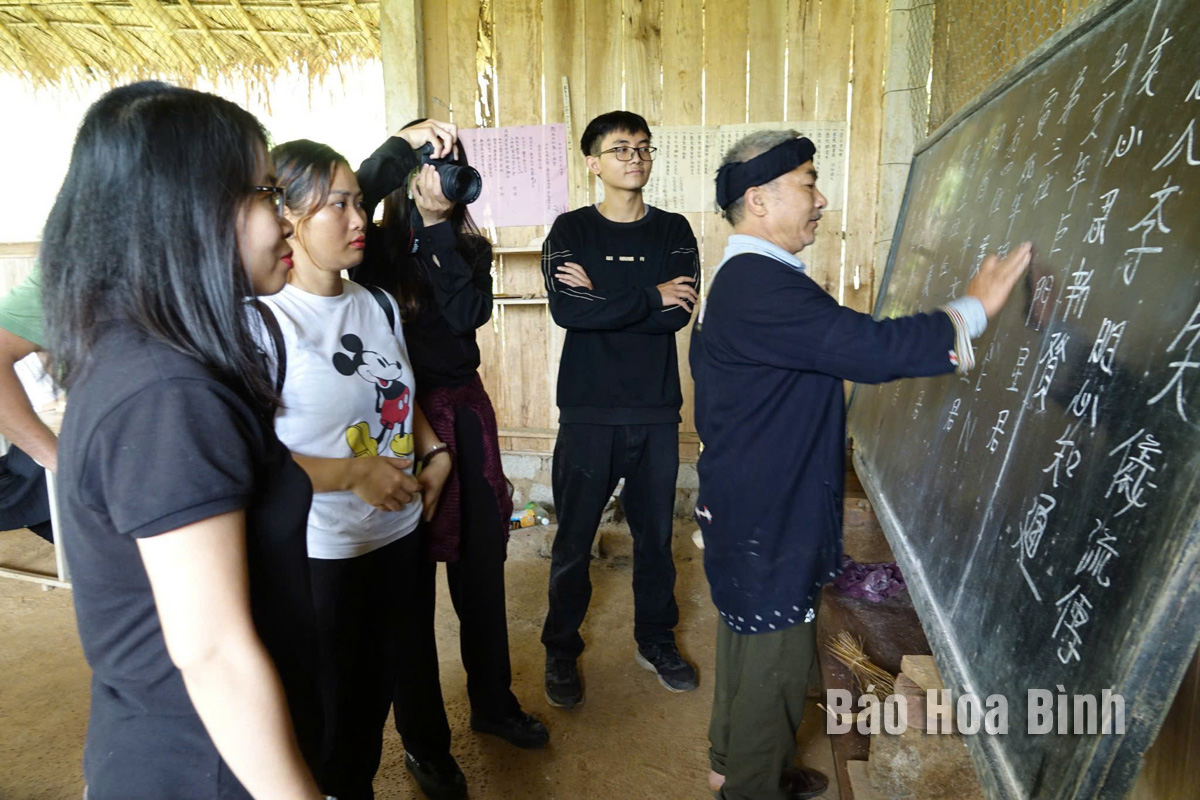Da Bac district has pinpointed culture as a key driver of tourism development, a direction clearly outlined in the Resolution of the 25th district Party Congress for the 2020-2025 tenure.
Dao ethnic residents in Sung village, Cao Son commune, Da Bac district, proudly introduce the unique characteristics of their writing system to visitors.
Hien Luong commune was recently selected as a pilot site for rural tourism development under the new rural programme for the 2021-2025 period, with a vision to 2030. If successful, Hien Luong is expected to become a core model spreading its value throughout Da Bac and creating a unique draw for tourism in the highlands, significantly contributing to socio-economic development in this mountainous area, which still faces challenges.
As part of the pilot model in Hien Luong, key initiatives will focus on infrastructure investment, spatial organisation, and connecting prominent tourist sites within the commune and neighbouring areas. Da Bac district is setting its sight on developing various types of tourism and rural tourism products by leveraging cultural values of ethnic minority groups. Central to this effort is the promotion of community tourism through investments in homestay accommodations at potential tourist hotspots such as the hamlets of Ke, Mo, and Doi. To achieve this, traditional stilt houses belonging to the Muong people will be renovated into guesthouses. Visitors will be introduced to the beautiful customs and traditions of local residents while enjoying services on sightseeing, cultural experiences and traditional culinary delights. This gradual development aims to create quality tourism products that reflect the rich cultural heritage of ethnic minorities, ultimately establishing distinctive values for the Da Bac tourism brand.
Despite its economic challenges, Da Bac district is blessed with beautiful natural landscapes. Ethnic minority groups make up 89.72% of the population, each with distinctive traditions and cultural values, yet all live in harmony, creating a valuable cultural mosaic for Da Bac. Fortunately, local communities continue to preserve their unique customs, which are reflected in festivals and daily life. This cultural preservation underpins Da Bac’s strategic focus on community-based tourism centred on indigenous values.
Over recent years, the district has adopted concerted measures to establish tourism as a major economic sector. In 2015, the district Party Committee issued Resolution No. 09-NQ/HU on tourism development for the 2015-2020 period, with orientations to 2030. Building on this, the district People's Committee approved a tourism development scheme in 2017. Tourism remains a priority in the Resolution of the district Party Congress for the 2020-2025 tenure.



